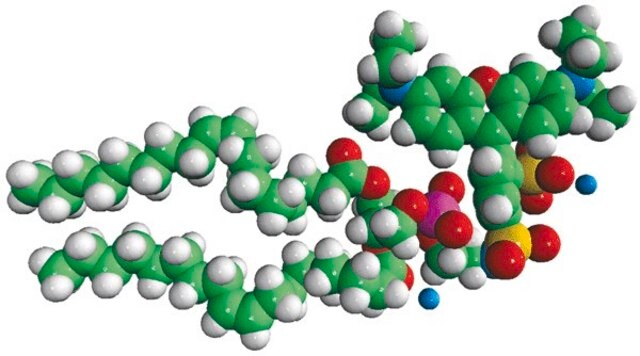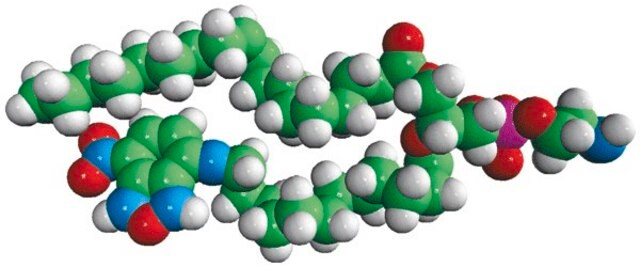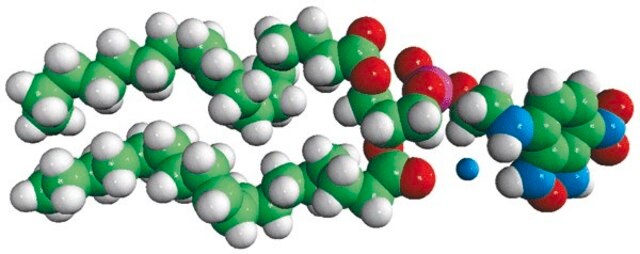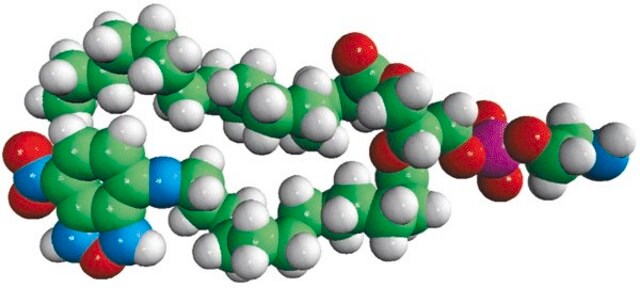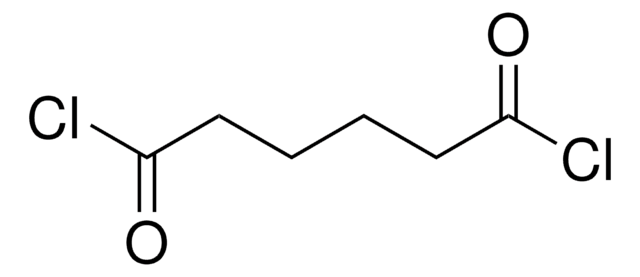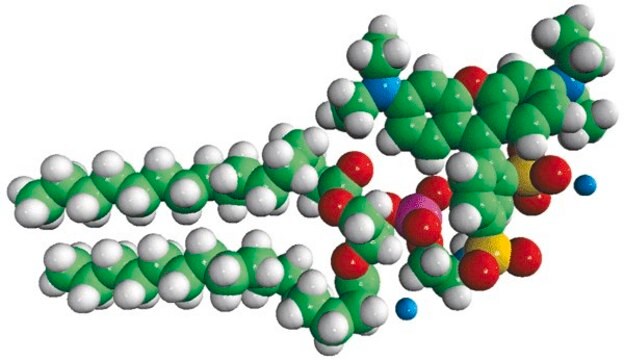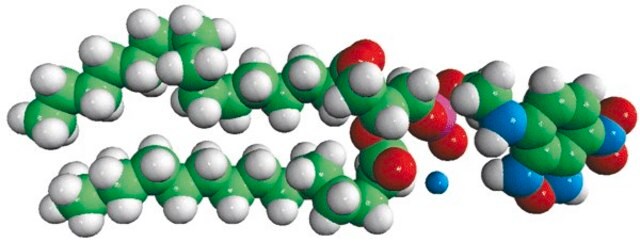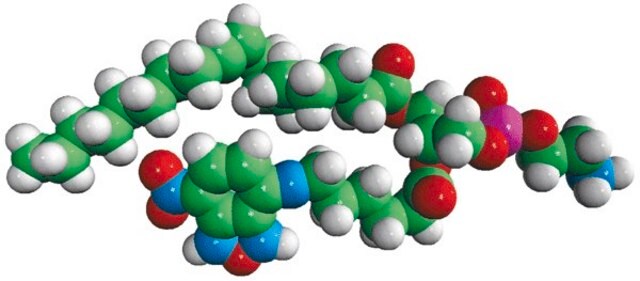810156P
Avanti
18:1-12:0 NBD PE
Avanti Research™ - A Croda Brand 810156P, powder
Sinonimo/i:
1-oleoyl-2-{12-[(7-nitro-2-1,3-benzoxadiazol-4-yl)amino]dodecanoyl}-sn-glycero-3-phosphoethanolamine
Autenticatiper visualizzare i prezzi riservati alla tua organizzazione & contrattuali
About This Item
Formula empirica (notazione di Hill):
C41H70N5O11P
Numero CAS:
Peso molecolare:
840.00
Codice UNSPSC:
12352211
NACRES:
NA.25
Prodotti consigliati
Saggio
>99% (TLC)
Stato
powder
Confezionamento
pkg of 1 × 1 mg (810156P-1mg)
Produttore/marchio commerciale
Avanti Research™ - A Croda Brand 810156P
Condizioni di spedizione
dry ice
Temperatura di conservazione
−20°C
Descrizione generale
N-(7-nitrobenz-2-oxa-1,3-diazol-4-yl) phosphoethanolamine (NBD PE) is a fluorescently labeled lipid where NBD is attached to the headgroup of phosphatidylethanolamine (PE). PE is an aminophospholipid abundant in brain.
Applicazioni
18:1-06:0 NBD PE or 1-oleoyl-2-{12-[(7-nitro-2-1,3-benzoxadiazol-4-yl)amino]dodecanoyl}-sn-glycero-3-phosphoethanolamine may be used as a component of liposome in cross-linking experiment and to determine M13 protein coat towards phospholipids.
Azioni biochim/fisiol
N-(7-nitrobenz-2-oxa-1,3-diazol-4-yl) phosphoethanolamine (NBD PE) plays a key role as a fluorescent analog in the studies of organization and dynamics of membranes. NBD PE contributes to monitoring Red edge excitation shift (REES) effects, with the unique motional and dielectric properties it possesses.
Confezionamento
5 mL Amber Glass Screw Cap Vial (810156P-1mg)
Note legali
Avanti Research is a trademark of Avanti Polar Lipids, LLC
Codice della classe di stoccaggio
11 - Combustible Solids
Scegli una delle versioni più recenti:
Certificati d'analisi (COA)
Lot/Batch Number
Ci dispiace, ma al momento non ci sono COA disponibili online per questo prodotto.
Se ti serve aiuto, non esitare a contattarci Servizio Clienti
Possiedi già questo prodotto?
I documenti relativi ai prodotti acquistati recentemente sono disponibili nell’Archivio dei documenti.
Fábio Fernandes et al.
Biophysical journal, 87(1), 344-352 (2004-07-09)
Quantification of lipid selectivity by membrane proteins has been previously addressed mainly from electron spin resonance studies. We present here a new methodology for quantification of protein-lipid selectivity based on fluorescence resonance energy transfer. A mutant of M13 major coat
Muhasin Koyiloth et al.
European biophysics journal : EBJ, 49(2), 163-173 (2020-02-06)
In this study, the SCRM-1 gene from Caenorhabditis elegans was cloned and overexpressed in E. coli to study the biochemical properties of scramblase. This is the first report showing that this scramblase from C. elegans possesses a Ca2+-dependent and head
Eun A Ra et al.
Nature communications, 7, 11726-11726 (2016-05-25)
Autophagy is responsible for the bulk degradation of cytosolic constituents and plays an essential role in the intestinal epithelium by controlling beneficial host-bacterial relationships. Atg5 and Atg7 are thought to be critical for autophagy. However, Atg5- or Atg7-deficient cells still
Takao Hanada et al.
The Journal of biological chemistry, 282(52), 37298-37302 (2007-11-08)
Autophagy is a bulk degradation process in eukaryotic cells; autophagosomes enclose cytoplasmic components for degradation in the lysosome/vacuole. Autophagosome formation requires two ubiquitin-like conjugation systems, the Atg12 and Atg8 systems, which are tightly associated with expansion of autophagosomal membrane. Previous
Non Miyata et al.
The Journal of cell biology, 214(1), 77-88 (2016-06-30)
Phosphatidylethanolamine (PE) is an essential phospholipid for mitochondrial functions and is synthesized mainly by phosphatidylserine (PS) decarboxylase at the mitochondrial inner membrane. In Saccharomyces cerevisiae, PS is synthesized in the endoplasmic reticulum (ER), such that mitochondrial PE synthesis requires PS
Il team dei nostri ricercatori vanta grande esperienza in tutte le aree della ricerca quali Life Science, scienza dei materiali, sintesi chimica, cromatografia, discipline analitiche, ecc..
Contatta l'Assistenza Tecnica.